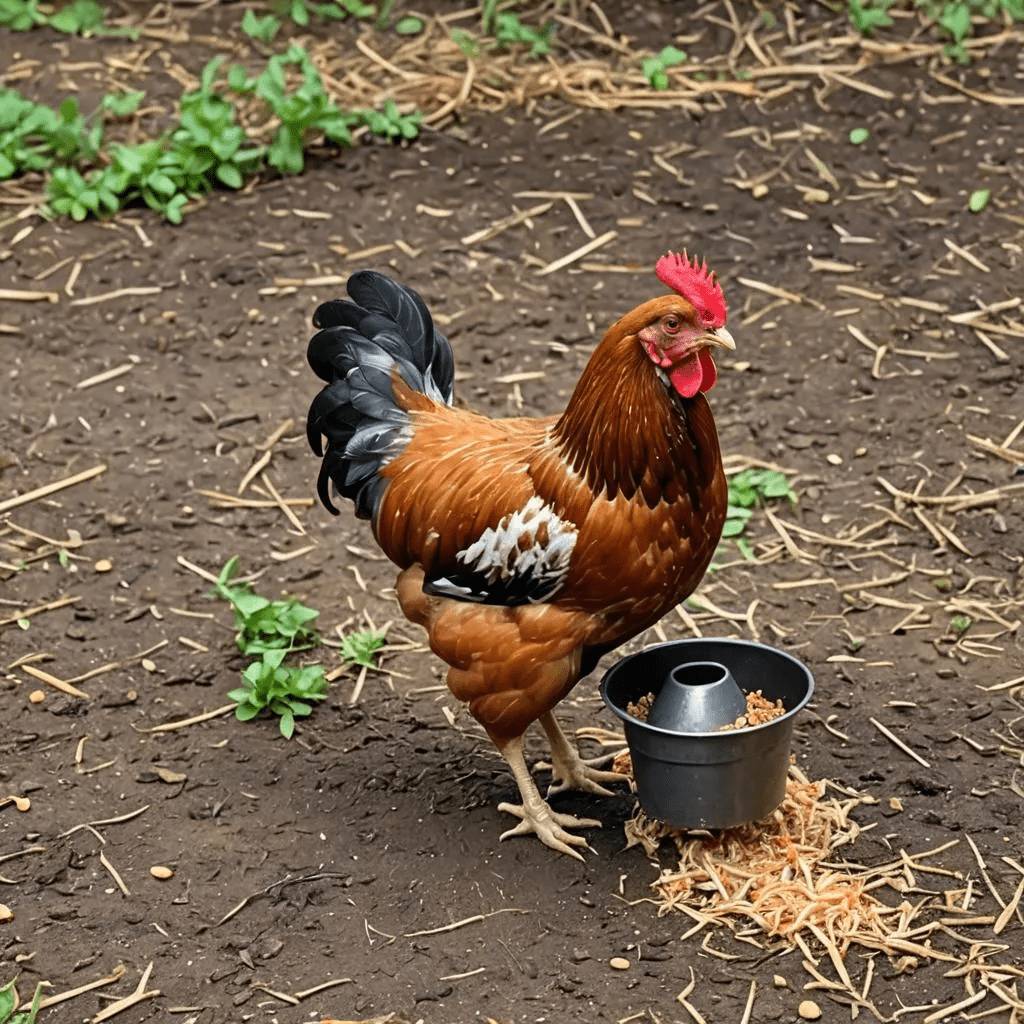What Should I Be Feeding My Chickens: A Guide to Proper Nutrition
Feeding chickens properly is essential for their health, productivity, and overall well-being. Whether you’re raising chickens for eggs, meat, or as pets, understanding their dietary needs at different stages of life is crucial. This comprehensive guide will walk you through the essentials of chicken nutrition, from chicks to mature birds, and when scratch grains fit into their diet.
1. Chick Nutrition (0-8 weeks)
Chicks have specific nutritional requirements to support their rapid growth and development. Here’s what you should be feeding them:

- Starter Feed: This feed is specifically formulated for chicks and should be given from hatch until about 8 weeks of age. It contains higher levels of protein (around 18-20%) to support muscle and feather development.
- Protein Content: Ensure the starter feed has adequate protein, crucial for chick growth. Look for feeds with amino acids like methionine and lysine, essential for their development.
- Medication (if necessary): Some starter feeds include medications like coccidiostats to prevent common diseases. Consult with a veterinarian or poultry specialist for guidance.
2. Growing Chickens (8-18 weeks)
As chickens grow, their nutritional needs change:
- Grower Feed: From 8 weeks until they start laying eggs (around 18-20 weeks), switch to grower feed. This feed has slightly less protein than starter feed (around 16-18%) but still provides essential nutrients for growth.
- Calcium Requirements: Growing chickens need calcium for bone development but too much can harm their kidneys. Ensure the grower feed is balanced in calcium or provide oyster shells separately.

3. Laying Hens (18+ weeks)
For hens that have reached laying age:

- Layer Feed: Once hens start laying eggs (around 18-20 weeks), switch to layer feed. This feed has lower protein (around 16-18%) but higher calcium (3-4%) to support eggshell formation.
- Supplements: Provide free-choice oyster shells or crushed eggshells to ensure hens get enough calcium for strong eggshells.
4. When to Feed Scratch Grains
Scratch grains are a treat for chickens and should be given sparingly:

- As Treats: Scratch grains should not exceed 10% of a chicken’s diet. They are low in protein and nutrients compared to complete feeds, so excessive feeding can lead to nutritional deficiencies.
- Moderation: Scatter scratch grains in the afternoon as a treat or to encourage foraging behavior, but ensure chickens have consumed their complete feed first.
5. General Feeding Tips
- Fresh Water: Provide fresh, clean water at all times, especially in hot weather.
- Foraging: If chickens have access to pasture, they’ll naturally forage for insects and plants, which can supplement their diet.
- Seasonal Adjustments: In winter, increase their feed slightly to help maintain body heat. In summer, consider providing cooler treats like watermelon.
Conclusion
Understanding what to feed your chickens at different stages of life is essential for their health and productivity. From starter feed for chicks to layer feed for hens, and the occasional treat of scratch grains, providing a balanced diet ensures your chickens thrive. By meeting their nutritional needs, you’ll enjoy healthy eggs, robust birds, and contented poultry companions.
By following these guidelines, you’ll be well-equipped to provide optimal nutrition for your chickens throughout their lives. Whether you’re a novice or seasoned poultry keeper, prioritizing their dietary requirements ensures happy, healthy chickens in your coop.
Remember, always consult with a veterinarian or poultry nutritionist for specific dietary recommendations tailored to your flock’s needs. With proper care and attention to nutrition, your chickens will flourish and reward you with years of joy and productivity.
Optimize your chickens’ health by feeding them right – it’s the key to a happy, clucking coop!
Chicken Feeding Chart by Life Stage
| Stage | Age Range | Type of Feed | Nutritional Focus | Notes |
|---|---|---|---|---|
| Chick | 0 – 8 weeks | Starter Feed | High protein (18-20%), vitamins, and minerals for rapid growth. | Crumble form is easier for small chicks to eat. |
| Pullet | 8 – 18 weeks | Grower Feed | Moderate protein (16-18%) with balanced nutrients for continued growth. | Transition from crumble to pellets as they grow. |
| Layer | 18+ weeks | Layer Feed | Lower protein (16-18%), higher calcium for strong eggshell production. | Provide free-choice oyster shell for extra calcium. |
| Broiler | 0 – 8 weeks | Starter/Grower Feed | High protein (20-24%) for rapid muscle development. | Usually fed in a crumble or pellet form. |
| Broiler | 8+ weeks | Finisher Feed | Lower protein (16-18%) to finish growth before processing. | Increase calorie content to promote weight gain. |
